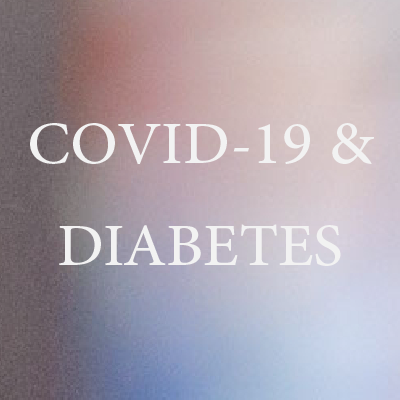Hibiscus Coconut Fizz (Modified and Swapped Ingredients)
Traditional Ingredients: 2 Hibiscus tea bags 2-3 sprigs Fresh Rosemary 1 cup sugar 1 cup water 1.5 oz Hibiscus Rosemary syrup 2-3 dashes Orange bitters 1 can Coconut flavored sparkling water Fresh lime wedges Modified Ingredients (Lighter option with swaps): 2 Hibiscus tea...
Read MoreHypoglycemia
Hypoglycemia occurs when your blood sugar drops too low. The body responds to low blood sugar with warning signs that may be different in each person. Some warning signs of low blood sugar are feeling: Weak Shaky Irritable or confused. Low blood sugar may occur if your meal or snack is delayed or missed, after vigorous physical activity, or if too much insulin is given. In a person without diabetes, the pancreas will stop producing insulin if the blood sugar level falls below normal. In a person with diabetes, the insulin they inject keeps working, even when the blood...
Read MoreType 1 Diabetes
Type 1 diabetes is usually diagnosed in children or young adults, although it can occur at any age. Roughly 3% of children and adolescents have diabetes. The onset of type 1 diabetes is often sudden and can include the following symptoms: Abnormal thirst and a dry mouth Frequent urination Extreme tiredness/lack of energy Sudden weight loss Slow-healing wounds Recurrent infections Blurred vision Type 1 diabetes occurs when the body’s immune system destroys the beta cells found in the pancreas—...
Read MoreChange 1 Thing, Improve Your Life
There are probably many things that each of us would like to change about our life, but thinking about them all at once can be overwhelming. Instead, choose just 1 thing to improve for now. Changing any one of the things below could have a big impact on your life with diabetes – both your physical health, and your emotional well-being. Make testing matter For people with diabetes, testing more often is the key to staying in control of your health. Frequent testing provides the data you need to make informed decisions about your medication, diet, and exercise regimens. Your test results show you the...
Read MoreInsulin Pumps
Insulin pumps provide insulin to your body 24 hours a day. A basal, or background, rate is delivered automatically based on your total daily insulin requirements. You can also give yourself a bolus insulin dose to cover the food you eat, as well as supplemental doses to correct your blood sugar when it is out of range. Your healthcare professional will help you determine your rates and dosages. Under the care of a healthcare professional, insulin pump users can go to school or work, sleep and even play sports with the pump. At night, it can be clipped to sleepwear, a blanket or tucked under your pillow. Insulin pump...
Read MoreHow can Coronavirus affect people living with diabetes?
With Coronavirus announced as a Pandemic by the World Health Organization on March 11, 2020 panic, rumors and fear has started to escalate among people. This article draws focus on COVID-19 for people living with diabetes, why they should be extra cautious and what precautionary methods they should be taking. What is Coronavirus (COVID-19)? As WHO defines it: “Coronaviruses are a large family of viruses, which may cause illness in animals or humans. In humans, several coronaviruses are known to cause respiratory infections ranging from the common cold to more severe...
Read MoreWhat is Diabetes?
Understanding the basics of diabetes is the first step in gaining control of your health. Let’s look at what causes diabetes, some of the common symptoms, the benefits of healthy living, and what to do if you’ve just been diagnosed. What is diabetes? Diabetes is a chronic disease. Your blood sugar levels are controlled by insulin, a hormone produced by your pancreas. When you eat, food gets broken down and glucose enters your bloodstream. Insulin takes the glucose out of your bloodstream and allows it to enter your cells where it is broken down and turned into energy. If you have...
Read MoreHyperglycemia
Hyperglycemia, or high blood glucose, occurs when blood glucose rises above your recommended range. Your healthcare professional will determine the proper healthy blood glucose range for you. High blood glucose can be caused by many things, including: Eating too much food Little or no physical activity Not taking medications Stress, infection or illness Bad or spoiled insulin High blood glucose can cause serious problems and a major cause of long-term diabetes complications. Warning signs of high blood glucose include: Tiredness or...
Read MoreFuture of Diabetes Treatment
Diabetes care has come a long way in just a few decades—after all, the first insulin pump was introduced in 1963, and fingerprick tests for personal blood glucose monitoring have only been around since the mid-1980s. So what's next? In development: Automating insulin delivery—the artificial pancreas Taking insulin pumping to the next level, an artificial pancreas is being tested that combines a continuous glucose monitor, insulin pump and glucagon pump (should blood glucose go too low), all managed by an app on a smartphone. The goal is to monitor your blood glucose and adjust your insulin throughout...
Read MorePages
Hypoglycemia
Hypoglycemia occurs when your blood sugar drops too low. The body responds to low blood sugar with warning signs that may be different in each person. Some warning signs of low blood sugar are feeling: Weak Shaky Irritable or confused. Low blood sugar may occur if your meal or snack is delayed or missed, after vigorous physical activity, or if too much insulin is given. In a person without diabetes, the pancreas will stop producing insulin if the blood sugar level falls below normal. In a person with diabetes, the insulin they inject keeps working, even when the blood...
Read MoreType 1 Diabetes
Type 1 diabetes is usually diagnosed in children or young adults, although it can occur at any age. Roughly 3% of children and adolescents have diabetes. The onset of type 1 diabetes is often sudden and can include the following symptoms: Abnormal thirst and a dry mouth Frequent urination Extreme tiredness/lack of energy Sudden weight loss Slow-healing wounds Recurrent infections Blurred vision Type 1 diabetes occurs when the body’s immune system destroys the beta cells found in the pancreas—...
Read MoreChange 1 Thing, Improve Your Life
There are probably many things that each of us would like to change about our life, but thinking about them all at once can be overwhelming. Instead, choose just 1 thing to improve for now. Changing any one of the things below could have a big impact on your life with diabetes – both your physical health, and your emotional well-being. Make testing matter For people with diabetes, testing more often is the key to staying in control of your health. Frequent testing provides the data you need to make informed decisions about your medication, diet, and exercise regimens. Your test results show you the...
Read MoreInsulin Pumps
Insulin pumps provide insulin to your body 24 hours a day. A basal, or background, rate is delivered automatically based on your total daily insulin requirements. You can also give yourself a bolus insulin dose to cover the food you eat, as well as supplemental doses to correct your blood sugar when it is out of range. Your healthcare professional will help you determine your rates and dosages. Under the care of a healthcare professional, insulin pump users can go to school or work, sleep and even play sports with the pump. At night, it can be clipped to sleepwear, a blanket or tucked under your pillow. Insulin pump...
Read MoreHow can Coronavirus affect people living with diabetes?
With Coronavirus announced as a Pandemic by the World Health Organization on March 11, 2020 panic, rumors and fear has started to escalate among people. This article draws focus on COVID-19 for people living with diabetes, why they should be extra cautious and what precautionary methods they should be taking. What is Coronavirus (COVID-19)? As WHO defines it: “Coronaviruses are a large family of viruses, which may cause illness in animals or humans. In humans, several coronaviruses are known to cause respiratory infections ranging from the common cold to more severe...
Read MoreWhat is Diabetes?
Understanding the basics of diabetes is the first step in gaining control of your health. Let’s look at what causes diabetes, some of the common symptoms, the benefits of healthy living, and what to do if you’ve just been diagnosed. What is diabetes? Diabetes is a chronic disease. Your blood sugar levels are controlled by insulin, a hormone produced by your pancreas. When you eat, food gets broken down and glucose enters your bloodstream. Insulin takes the glucose out of your bloodstream and allows it to enter your cells where it is broken down and turned into energy. If you have...
Read MoreHyperglycemia
Hyperglycemia, or high blood glucose, occurs when blood glucose rises above your recommended range. Your healthcare professional will determine the proper healthy blood glucose range for you. High blood glucose can be caused by many things, including: Eating too much food Little or no physical activity Not taking medications Stress, infection or illness Bad or spoiled insulin High blood glucose can cause serious problems and a major cause of long-term diabetes complications. Warning signs of high blood glucose include: Tiredness or...
Read MoreFuture of Diabetes Treatment
Diabetes care has come a long way in just a few decades—after all, the first insulin pump was introduced in 1963, and fingerprick tests for personal blood glucose monitoring have only been around since the mid-1980s. So what's next? In development: Automating insulin delivery—the artificial pancreas Taking insulin pumping to the next level, an artificial pancreas is being tested that combines a continuous glucose monitor, insulin pump and glucagon pump (should blood glucose go too low), all managed by an app on a smartphone. The goal is to monitor your blood glucose and adjust your insulin throughout...
Read More








